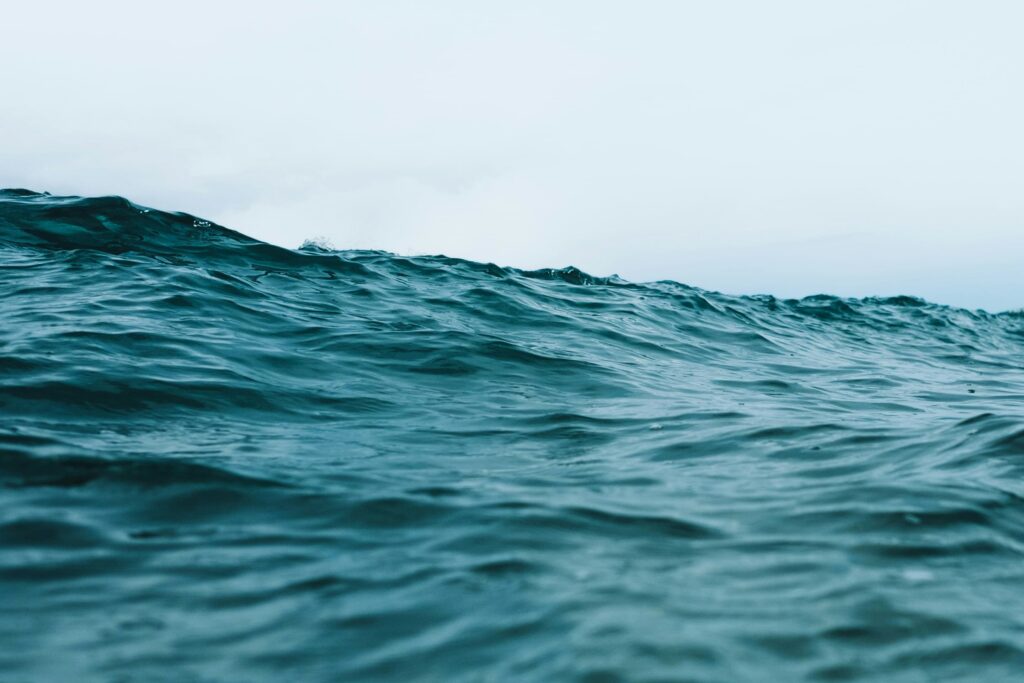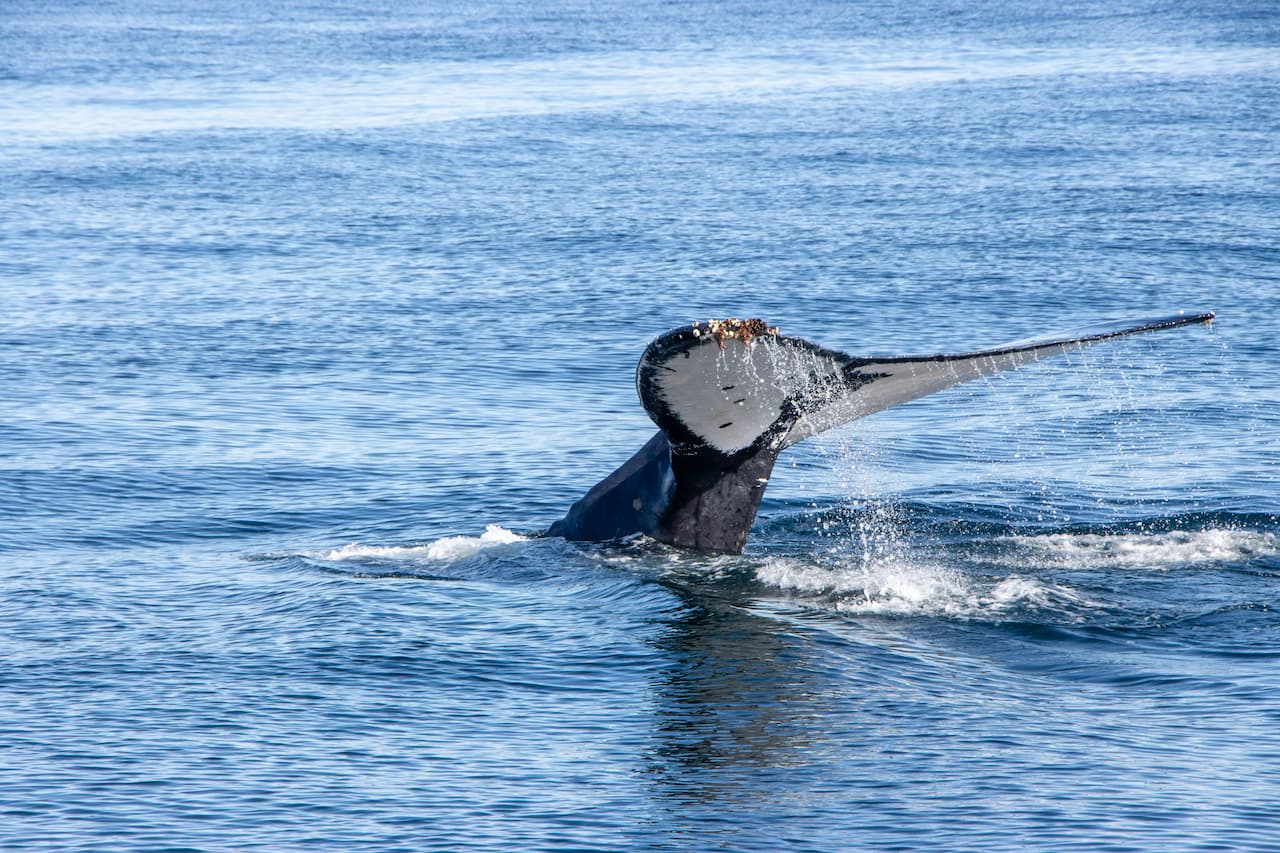Discover how ethical whale watching practices and cutting-edge ocean data collection are revolutionizing marine conservation. From educating tourists to tracking climate change, these efforts play a vital role in protecting our planet’s oceans and the magnificent creatures that inhabit them.
Ethical Whale Watching
- Minimized Disturbance: Ethical whale watching ensures that whales are not disturbed by maintaining a safe distance between boats and the animals. This practice prevents disruptions to the whales’ natural behaviors, such as feeding, mating, and migrating, which are essential for their survival and well-being. Operators are trained to follow guidelines that promote a non-intrusive experience for both whales and tourists.
- Regulated Tours: In many regions, whale watching tours are regulated to protect marine life. Such as whale watching tours in Monterey (reviewed by HikingInBigSur.com). These regulations can include speed limits for boats, restrictions on the number of vessels around whales, and specific areas where whale watching is not allowed. These measures help to reduce the stress and potential harm to whales, ensuring a sustainable and responsible wildlife tourism industry.
- Educational Focus: Ethical whale watching tours often incorporate educational elements to inform participants about whale species, behaviors, and conservation issues. Knowledgeable guides share insights and scientific information, helping to raise awareness about the importance of protecting these majestic creatures and their habitats. This educational component fosters a deeper connection and respect for marine life among tourists.
- Support for Conservation: Many ethical whale watching operators contribute to conservation efforts by donating a portion of their profits to whale research and protection programs. This financial support helps fund important initiatives such as monitoring whale populations, protecting critical habitats, and conducting scientific studies that inform conservation strategies.
- Sustainable Practices: Sustainable practices are a cornerstone of ethical whale watching. Operators may use eco-friendly boats with lower emissions, minimize plastic use on tours, and implement waste reduction measures. These efforts reduce the environmental footprint of whale watching activities, helping to preserve the ocean ecosystem for future generations.
- Wildlife Codes of Conduct: Ethical whale watching adheres to established codes of conduct that outline responsible practices. These guidelines include not encircling whales, avoiding sudden changes in boat speed or direction, and keeping noise levels low. By following these codes, operators minimize the impact on whales and ensure a respectful and safe viewing experience.
- Community Involvement: Ethical whale watching often involves local communities, providing economic benefits through tourism while promoting cultural respect and environmental stewardship. By engaging local residents in the operation and management of tours, these initiatives support sustainable livelihoods and enhance community-led conservation efforts.
- Non-Invasive Research: Whale watching can provide valuable platforms for non-invasive research, where scientists collect data on whale behavior, health, and population dynamics without disturbing the animals. This collaboration between researchers and tour operators enhances our understanding of whales and contributes to their conservation.
- Public Awareness: By educating tourists about marine conservation, ethical whale watching increases public awareness and advocacy for ocean health. Tourists who learn about the threats facing whales and the importance of protecting their habitats are more likely to support conservation efforts and adopt environmentally friendly practices.
- Whale Sighting Networks: Some ethical whale watching operators participate in networks that share whale sighting information. These networks help track whale movements, contributing to broader research and conservation efforts. By collaborating and sharing data, operators and researchers can better understand whale migration patterns and address conservation challenges.
Ocean Data

- Climate Monitoring: Ocean data plays a critical role in monitoring climate change by providing information on sea surface temperatures, sea level rise, and ocean acidification. These indicators help scientists understand the impacts of global warming on marine ecosystems and predict future climate scenarios, informing policy decisions and mitigation strategies.
- Biodiversity Assessment: Assessing marine biodiversity relies heavily on ocean data to track the distribution and abundance of species. This information is crucial for managing and protecting marine ecosystems, as it helps identify areas of high biodiversity, monitor species health, and detect changes due to environmental stressors or human activities.
- Marine Weather Forecasting: Accurate marine weather forecasting depends on comprehensive ocean data. By measuring parameters such as temperature, salinity, and currents, scientists can predict weather patterns, storms, and ocean conditions. This information is vital for the safety of maritime activities, including shipping, fishing, and recreational boating, as well as for coastal communities.
- Fisheries Management: Sustainable fisheries management relies on detailed ocean data to set quotas, monitor fish stocks, and ensure the long-term viability of marine resources. By understanding the dynamics of fish populations and their habitats, managers can make informed decisions that balance ecological health with economic needs.
- Pollution Tracking: Ocean data is essential for tracking pollution levels, including oil spills, plastic debris, and chemical contaminants. Monitoring these pollutants helps identify sources of contamination, assess their impact on marine life and ecosystems, and develop strategies for mitigation and cleanup efforts to protect ocean health.
- Satellite Observations: Satellites provide large-scale and long-term observations of the ocean, offering data on currents, temperature, sea level, and more. These observations are crucial for understanding global ocean dynamics, climate patterns, and environmental changes. Satellite data supports a wide range of applications, from weather forecasting to disaster response.
- Underwater Sensors: Networks of underwater sensors and buoys collect real-time data on various ocean parameters, such as temperature, salinity, and pressure. This data enhances our understanding of ocean conditions, supports marine research, and helps manage resources. Real-time monitoring is particularly valuable for detecting and responding to environmental changes and natural disasters.
- Coral Reef Monitoring: Ocean data is vital for monitoring the health of coral reefs, which are highly sensitive to changes in water temperature, acidity, and pollution. By collecting and analyzing data on these factors, scientists can assess the condition of reefs, identify threats, and implement conservation measures to protect these critical habitats.
- Marine Protected Areas: Data-driven approaches are essential for the design and management of Marine Protected Areas (MPAs). Ocean data helps identify critical habitats, assess the effectiveness of protection measures, and ensure that MPAs effectively conserve marine biodiversity and ecosystems. This scientific basis supports more effective conservation strategies.
- Oceanographic Research: Ocean data supports a wide range of scientific research, from studying deep-sea ecosystems to understanding ocean-atmosphere interactions. This research advances our knowledge of marine environments, informs conservation efforts, and helps address global challenges such as climate change, resource management, and biodiversity loss.



